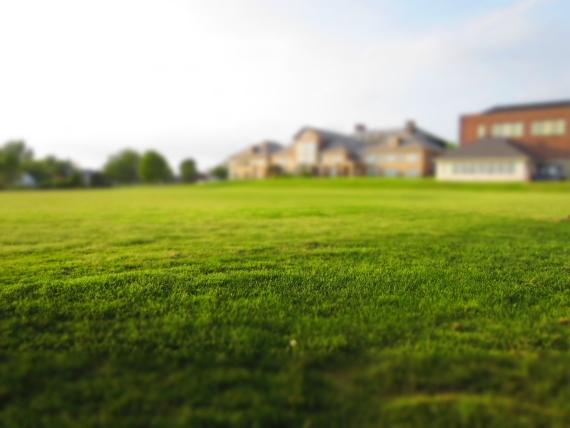Ultimate Guide to Finding Your Next Piece of Hunting Land
Posted: October 11, 2015 by LandCentury

Hunters that want to feed their family and have a steady stock of land to hunt on have a few options. The first is to buy your own land, but times have changed, and this process is a little more in-depth than it has been in the past (well discuss this in length shortly). Or, you have the option of seeking permission to hunt on someone elses land.
The issue is that it can take a lot of work to be granted permission to hunt on another persons land.
With the right approach, youll find that many people are willing to let you hunt, and most will allow you to do so for free.
A few golden tips include:
- Discussing your options with local hunting groups. Many groups have members that are more than willing to share their hunting land with others. Youll use this as a social outlet and one that allows you to hunt in the process.
- Talk with ranch and farm owners in your area. Most farmers need to keep outside animals away from their crops and cattle. If you see deer on the property, talk to the owner and tell them that you can help keep the deer population in control. Your best option is to be very flexible and state that you wont:
- Hunt on any specific days if needed.
- Hunt game of a certain size.
- Invite others to hunt.
If youre flexible in your discussion with the owner of the land, youll be surprised by how willing and happy the farmer will be to let you hunt on the property. And, its an avenue that is free and doesnt require you to lease the land or pay for hunting rights.
Buying Your Own Hunting Land
You want to own your own parcel of land and dont want to have to deal with owners. You may even have an idea to open up your own hunting lodge on the property, and try to make the land pay for itself. This is a great idea, but there are a few considerations you need to keep in mind.
Location and Local Ordinances
The location and local ordinances will play a big role in finding land where youll actually be allowed to hunt.
Location
For hunting, you want a lot of acreage so that you have a large diversity of game available. You may want to hunt small game or deer, but you need to know what lives in the local habitat. This is your first big question that needs to be answered.
If the animals you want to hunt dont live in the region, you obviously dont want to buy land there.
Farming and agricultural land are often the best option. Why? You may be able to profit off of the land and even lease some of the land to farmers to turn a profit, or have the land pay for itself. Well discuss this topic more in-depth shortly.
Local Ordinances
Many people dont realize that some land cant be hunted on legally. You need to know the local ordinances in the city where you plan to buy your parcel. For example, a large lot may be too close to a local school and a law may not allow hunting within a specific range of the school. For you, this could lead to legal consequences for hunting.
Profiting from the Land
Before you go and think that the land will pay for itself, you need to know that a lot of hunters are not leasing hunting rights anymore. There are far too many people, depending on the location, that give permission to hunters to hunt on the land.
And, dont buy the land if you cant afford the property taxes and subsequent loan payments on your current income.
There are a few ways that you can profit from the hunting land that should be considered:
- Open a hunting lodge and provide added services to the hunters.
- Contact local hunting groups and offer to lease the land to them as a group.
- Offer farmers grazing rights to a non-hunting section of the property.
- Farm the property to make a profit.
If you plan on somehow commercializing the land, youll want to research the parcels zoning rights. You may need the land to be classified as commercial property in some jurisdictions.
Beginning the Property Search

Youve put a lot of thought and consideration into the land you want to buy. And, its time to begin your search. I recommend a few parameters that will allow you to narrow your search greatly:
- Choose locations within an hour from major cities.
- Research land that is close to your current home.
- Be prepared to pay more than the market value for prime hunting land.
- Find tillable and timberland mixed property if you want to farm and grow your own food.
- Try finding land that is below market value.
Unless you plan on monetizing the land, for example, property that is in Missouri may be directly in the path of snow geese migration, this property would demand a premium. But, if youre buying the land to hunt for yourself and your friends, you dont want to pay a premium for the land unless you have a solid monetization plan in place.
If you have cash, youll be able to find sales faster and bargain with owners. Most owners are willing to give up their property for a price. And, if you have cash, youll be able to negotiate your own terms.
Note: Its difficult to get financing for land from a traditional lender. Youll either need a large down payment or have your own cash available for the purchase.
A few other avenues you can pursue to find your land include:
- Local newspapers
- Land auctions
- Government land sales
- Foreclosed land
- Surplus land sale websites
Realtors can also help you find land, but youll pay a higher price than you would for land thats for sale by owner.
The issue is that it can take a lot of work to be granted permission to hunt on another persons land.
With the right approach, youll find that many people are willing to let you hunt, and most will allow you to do so for free.
A few golden tips include:
- Discussing your options with local hunting groups. Many groups have members that are more than willing to share their hunting land with others. Youll use this as a social outlet and one that allows you to hunt in the process.
- Talk with ranch and farm owners in your area. Most farmers need to keep outside animals away from their crops and cattle. If you see deer on the property, talk to the owner and tell them that you can help keep the deer population in control. Your best option is to be very flexible and state that you wont:
- Hunt on any specific days if needed.
- Hunt game of a certain size.
- Invite others to hunt.
If youre flexible in your discussion with the owner of the land, youll be surprised by how willing and happy the farmer will be to let you hunt on the property. And, its an avenue that is free and doesnt require you to lease the land or pay for hunting rights.
Buying Your Own Hunting Land
You want to own your own parcel of land and dont want to have to deal with owners. You may even have an idea to open up your own hunting lodge on the property, and try to make the land pay for itself. This is a great idea, but there are a few considerations you need to keep in mind.
Location and Local Ordinances
The location and local ordinances will play a big role in finding land where youll actually be allowed to hunt.
Location
For hunting, you want a lot of acreage so that you have a large diversity of game available. You may want to hunt small game or deer, but you need to know what lives in the local habitat. This is your first big question that needs to be answered.
If the animals you want to hunt dont live in the region, you obviously dont want to buy land there.
Farming and agricultural land are often the best option. Why? You may be able to profit off of the land and even lease some of the land to farmers to turn a profit, or have the land pay for itself. Well discuss this topic more in-depth shortly.
Local Ordinances
Many people dont realize that some land cant be hunted on legally. You need to know the local ordinances in the city where you plan to buy your parcel. For example, a large lot may be too close to a local school and a law may not allow hunting within a specific range of the school. For you, this could lead to legal consequences for hunting.
Profiting from the Land
Before you go and think that the land will pay for itself, you need to know that a lot of hunters are not leasing hunting rights anymore. There are far too many people, depending on the location, that give permission to hunters to hunt on the land.
And, dont buy the land if you cant afford the property taxes and subsequent loan payments on your current income.
There are a few ways that you can profit from the hunting land that should be considered:
- Open a hunting lodge and provide added services to the hunters.
- Contact local hunting groups and offer to lease the land to them as a group.
- Offer farmers grazing rights to a non-hunting section of the property.
- Farm the property to make a profit.
If you plan on somehow commercializing the land, youll want to research the parcels zoning rights. You may need the land to be classified as commercial property in some jurisdictions.
Beginning the Property Search

Youve put a lot of thought and consideration into the land you want to buy. And, its time to begin your search. I recommend a few parameters that will allow you to narrow your search greatly:
- Choose locations within an hour from major cities.
- Research land that is close to your current home.
- Be prepared to pay more than the market value for prime hunting land.
- Find tillable and timberland mixed property if you want to farm and grow your own food.
- Try finding land that is below market value.
Unless you plan on monetizing the land, for example, property that is in Missouri may be directly in the path of snow geese migration, this property would demand a premium. But, if youre buying the land to hunt for yourself and your friends, you dont want to pay a premium for the land unless you have a solid monetization plan in place.
If you have cash, youll be able to find sales faster and bargain with owners. Most owners are willing to give up their property for a price. And, if you have cash, youll be able to negotiate your own terms.
Note: Its difficult to get financing for land from a traditional lender. Youll either need a large down payment or have your own cash available for the purchase.
A few other avenues you can pursue to find your land include:
- Local newspapers
- Land auctions
- Government land sales
- Foreclosed land
- Surplus land sale websites
Realtors can also help you find land, but youll pay a higher price than you would for land thats for sale by owner.




